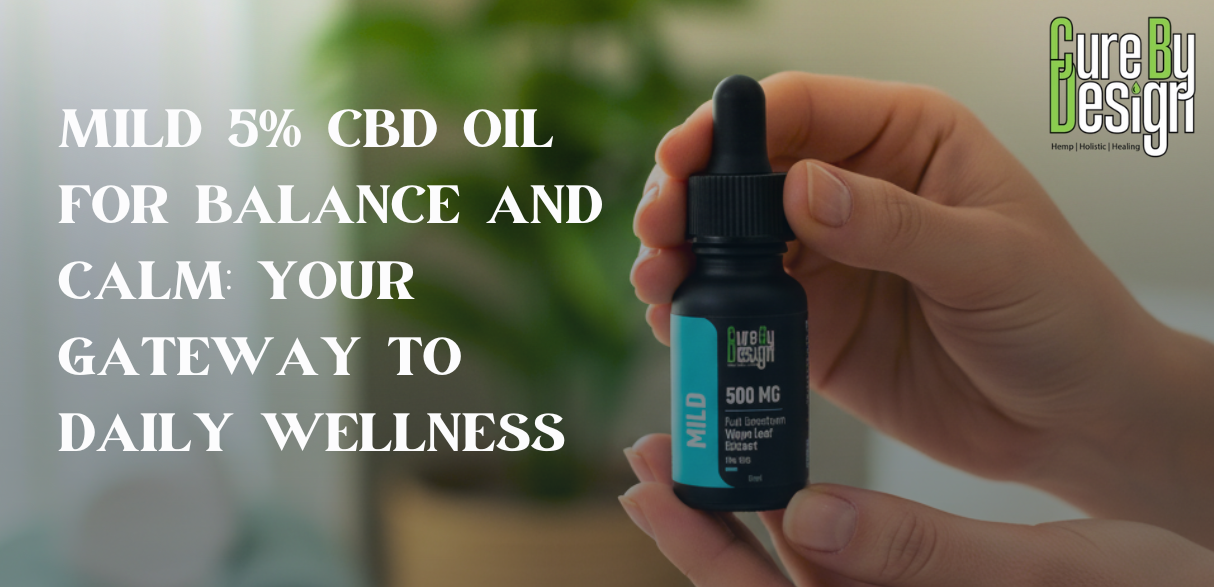
Blog
Hemp oil for managing weight effectively

Hemp oil is derived from hemp seeds and is loaded with essential fatty acids, especially omega-3 and omega-6, which are in a perfect 3:1 ratio. It also has gamma-linolenic acid (GLA), which boasts anti-inflammatory benefits. Studies suggest that hemp oil can help regulate metabolism by encouraging the body to use fat for energy instead of storing it. Additionally, it may play a role in appetite control and hormonal balance, helping to manage hunger cues. Including hemp oil in your diet, such as adding it to smoothies or salads, could be beneficial during weight loss efforts when combined with exercise and healthy eating habits.
1. What is Hemp Oil?
Hemp oil is a natural oil extracted from the seeds of the hemp plant, Cannabis sativa. It is celebrated for its rich nutritional profile, primarily containing essential fatty acids (EFAs) such as omega-3 and omega-6 in a beneficial ratio of 3:1. This balance is crucial for maintaining overall health. Additionally, hemp oil is a source of gamma-linolenic acid (GLA), which is known for its anti-inflammatory benefits. These properties make hemp oil not only a versatile cooking ingredient but also a potential aid in weight management. By incorporating hemp oil into your diet, you can enhance your nutrient intake while harnessing its unique compounds that may assist in regulating metabolism, appetite, and hormonal balance.
2. How Hemp Oil Works for Weight Management
Hemp oil plays a significant role in weight management through various mechanisms that interact with the body’s metabolic processes. One of the key ways it aids in weight control is by regulating metabolism, which helps the body use fat for energy instead of storing it. This can lead to a more efficient energy expenditure and may contribute to weight loss over time.
Additionally, hemp oil may help with appetite control. Some studies indicate that the fatty acids in hemp oil can influence hunger hormones, potentially leading to reduced calorie intake. This is particularly beneficial for those trying to create a calorie deficit for weight loss. The gamma-linolenic acid (GLA) present in hemp oil also supports hormonal balance, further aiding in the regulation of hunger and satiety.
Moreover, the omega-3 fatty acids found in hemp oil can enhance fat oxidation, especially during physical activity. This means that incorporating hemp oil into a diet can not only provide essential nutrients but also improve the effectiveness of exercise in burning fat.
The anti-inflammatory properties of hemp oil are another advantage, as they can support recovery from workouts. This is essential for maintaining a consistent exercise routine, which is crucial for long-term weight management. Overall, the combination of these mechanisms makes hemp oil a valuable addition to a weight management plan.
3. Health Benefits of Hemp Oil

Hemp oil offers several health benefits that can aid in effective weight management. One of the primary advantages is its rich nutritional profile, which includes essential fatty acids, proteins, and vitamins. These nutrients support overall health, ensuring that the body has the energy and resources it needs during weight loss efforts. Additionally, the anti-inflammatory properties of hemp oil can help reduce inflammation in the body, which may assist in recovery after exercise, allowing for more consistent workouts.
Moreover, hemp oil is known for its potential to help regulate appetite. The gamma-linolenic acid (GLA) found in hemp oil may contribute to hormonal balance, influencing feelings of hunger and fullness. This can lead to a natural reduction in calorie intake, making it easier to stick to a weight loss plan.
Furthermore, the omega-3 fatty acids in hemp oil can enhance fat oxidation, particularly during physical activity. By promoting the use of fat as an energy source, hemp oil can support weight management efforts. Individuals who incorporate hemp oil into their diet may also notice improvements in skin health, which can be particularly motivating during a weight loss journey.
4. Key Scientific Studies on Hemp Oil
Several key studies have explored the role of hemp oil in weight management. One notable study published in The Journal of Nutritional Biochemistry found that omega-3 fatty acids, prevalent in hemp oil, can influence fat metabolism and reduce body fat levels. This suggests that incorporating hemp oil into the diet may assist in effective weight management by promoting the utilization of fat as energy. Additionally, research highlighted in Obesity Reviews indicates that dietary fats, including those from hemp oil, can positively affect body composition when consumed in moderation. The presence of gamma-linolenic acid (GLA), which is known to improve insulin sensitivity, is also linked to weight management through the reduction of body fat. These findings underscore the potential of hemp oil as a beneficial addition to a balanced diet aimed at weight control.
| Mechanism | Description | Study Reference |
|---|---|---|
| Metabolism Regulation | Hemp oil supports metabolic processes, helping the body utilize fat for energy rather than storing it. | The Journal of Nutritional Biochemistry |
| Appetite Control | Hemp oil may help regulate appetite, potentially leading to reduced calorie intake. | Obesity Reviews |
| Hormonal Balance | GLA in hemp oil helps balance hormones that regulate hunger and satiety. | Obesity Reviews |
| Fat Oxidation | Omega-3 fatty acids enhance fat oxidation during physical activity. | The Journal of Nutritional Biochemistry |
5. How to Use Hemp Oil in Your Diet
Incorporating hemp oil into your diet can be both simple and beneficial for weight management. One of the easiest ways to use hemp oil is by adding it to smoothies. Just a tablespoon blended with your favorite fruits and greens can boost the nutritional value while providing healthy fats. You can also drizzle hemp oil over salads as a dressing, enhancing flavor and nutrition without adding excessive calories.
For those who prefer a more direct approach, taking hemp oil as a supplement is an option. Typical dosages range from 1 to 2 tablespoons per day, but it’s wise to consult with a healthcare provider for personalized advice based on your individual health needs.
Balancing hemp oil with regular exercise is vital for effective weight management. Combining its benefits with physical activity can help optimize fat utilization and improve overall health. For example, using hemp oil in meals before workouts may provide the necessary energy while promoting fat oxidation during exercise.
Remember to store hemp oil in a cool, dark place to maintain its freshness and potency. Always check for any allergies or sensitivities before adding it to your diet.
- Add hemp oil to smoothies for a nutrient boost.
- Drizzle hemp oil over salads as a flavorful dressing.
- Use it as a finishing oil for roasted vegetables.
- Incorporate hemp oil into baking recipes for added health benefits.
- Mix hemp oil into soups or stews for extra richness.
- Use it in marinades for meats or tofu to enhance flavor.
6. Recommended Dosage of Hemp Oil
When considering hemp oil for weight management, the recommended dosage typically ranges from 1 to 2 tablespoons per day. This amount provides a balanced intake of essential fatty acids without excessive calorie consumption. For those new to hemp oil, starting with a smaller amount, such as 1 teaspoon, can help the body adjust. It’s important to incorporate the oil gradually into your diet to monitor how your body reacts.
Hemp oil can be easily added to various meals. For example, you might drizzle it over salads, blend it into smoothies, or use it as a cooking oil for low-heat dishes. However, individual needs may vary based on factors like body weight, activity level, and overall health. Therefore, consulting with a healthcare provider is advisable to determine the optimal dosage tailored to your specific circumstances. This personalized approach ensures you can safely enjoy the benefits of hemp oil while effectively managing your weight.
7. Importance of Exercise with Hemp Oil
Exercise plays a crucial role in weight management, and when combined with hemp oil, it can enhance overall results. Regular physical activity not only burns calories but also helps to build muscle, which can increase metabolism. Hemp oil, rich in omega-3 fatty acids, can support this process by improving fat oxidation during workouts. For instance, individuals engaging in aerobic exercises may find that the presence of hemp oil in their diet helps them utilize fat more efficiently for energy, leading to better performance and weight loss.
Incorporating hemp oil into a post-workout routine can also aid in recovery. The anti-inflammatory properties of gamma-linolenic acid (GLA) can help reduce muscle soreness, allowing individuals to maintain a consistent exercise regimen. This consistency is key, as the more regularly one exercises, the more effective weight management becomes.
Moreover, combining hemp oil with exercise can help regulate appetite. If exercise triggers hunger, hemp oil’s hormonal balancing effects may help individuals feel satisfied with smaller portions, thus preventing overeating. For example, a person might take hemp oil as part of a smoothie before a workout to provide energy and help control appetite afterward.
Ultimately, for those seeking to manage their weight effectively, a balanced approach that includes both exercise and the nutritional benefits of hemp oil can lead to better outcomes.
8. Precautions When Using Hemp Oil
Before incorporating hemp oil into your routine, there are several precautions to consider. First, individuals with known allergies to hemp or other related plants should avoid using hemp oil to prevent allergic reactions. It is also essential to consult a healthcare provider, especially for those who are pregnant, nursing, or have underlying health conditions, as hemp oil may interact with certain medications. Additionally, while hemp oil has many benefits, moderation is key. Consuming excessive amounts may lead to unwanted side effects, such as digestive discomfort or changes in appetite. Always start with a small dose and observe how your body reacts. Lastly, ensure that you source high-quality hemp oil from reputable suppliers to avoid contaminants and ensure the oil’s efficacy.
9. Future Research Directions on Hemp Oil
Future research on hemp oil should focus on several key areas to better understand its potential for weight management. Firstly, longitudinal studies examining the long-term effects of hemp oil consumption on weight loss and metabolic health are essential. These studies could provide insights into how continuous use of hemp oil impacts body composition over time.
Additionally, research could explore the specific mechanisms by which hemp oil influences appetite regulation and fat metabolism. For instance, investigating how GLA affects hormonal signals related to hunger could clarify how hemp oil helps control cravings.
Another promising direction is the exploration of hemp oil in different dietary contexts. Studies could compare the effects of hemp oil in various diets, such as ketogenic or plant-based diets, to determine its effectiveness across different eating patterns.
Moreover, examining the interactions between hemp oil and other dietary fats could yield valuable information. Understanding how hemp oil complements or contrasts with other sources of healthy fats may enhance dietary recommendations for weight management.
Finally, expanding the scope of research to include diverse populations will be crucial. Different genetic backgrounds, lifestyle factors, and pre-existing health conditions can influence how individuals respond to hemp oil, making it important to tailor recommendations based on a broader set of demographics.
Frequently Asked Questions
1. How does hemp oil help with weight management?
Hemp oil may support weight management by promoting a feeling of fullness and reducing appetite, thanks to its healthy fats and nutrients.
2. Are there any side effects of using hemp oil for weight loss?
Most people tolerate hemp oil well, but some might experience mild digestive issues. It’s always best to consult a doctor before starting any new supplement.
3. Can I use hemp oil alongside my diet and exercise plan?
Yes, you can use hemp oil as a part of your diet and exercise routine. It can complement healthy habits rather than replace them.
4. How much hemp oil should I take for weight management?
The ideal amount varies for each person. It’s generally recommended to start with a small dose, like a teaspoon, and adjust based on your body’s response.
5. Is hemp oil safe for long-term use in weight management?
Hemp oil is considered safe for long-term use, but it’s important to monitor how it affects you personally and discuss it with a healthcare provider.
TL;DR Hemp oil, rich in essential fatty acids like omega-3 and omega-6, can aid in weight management by regulating metabolism, controlling appetite, and balancing hormones. Key benefits include nutritional support, reduced inflammation, and improved skin health. Research suggests it may influence fat metabolism and body composition positively. To use hemp oil, incorporate 1 to 2 tablespoons daily into meals, alongside regular exercise for optimal results. Consult a healthcare provider before starting, and be mindful of potential allergies. While beneficial, it should complement a holistic approach to health.












